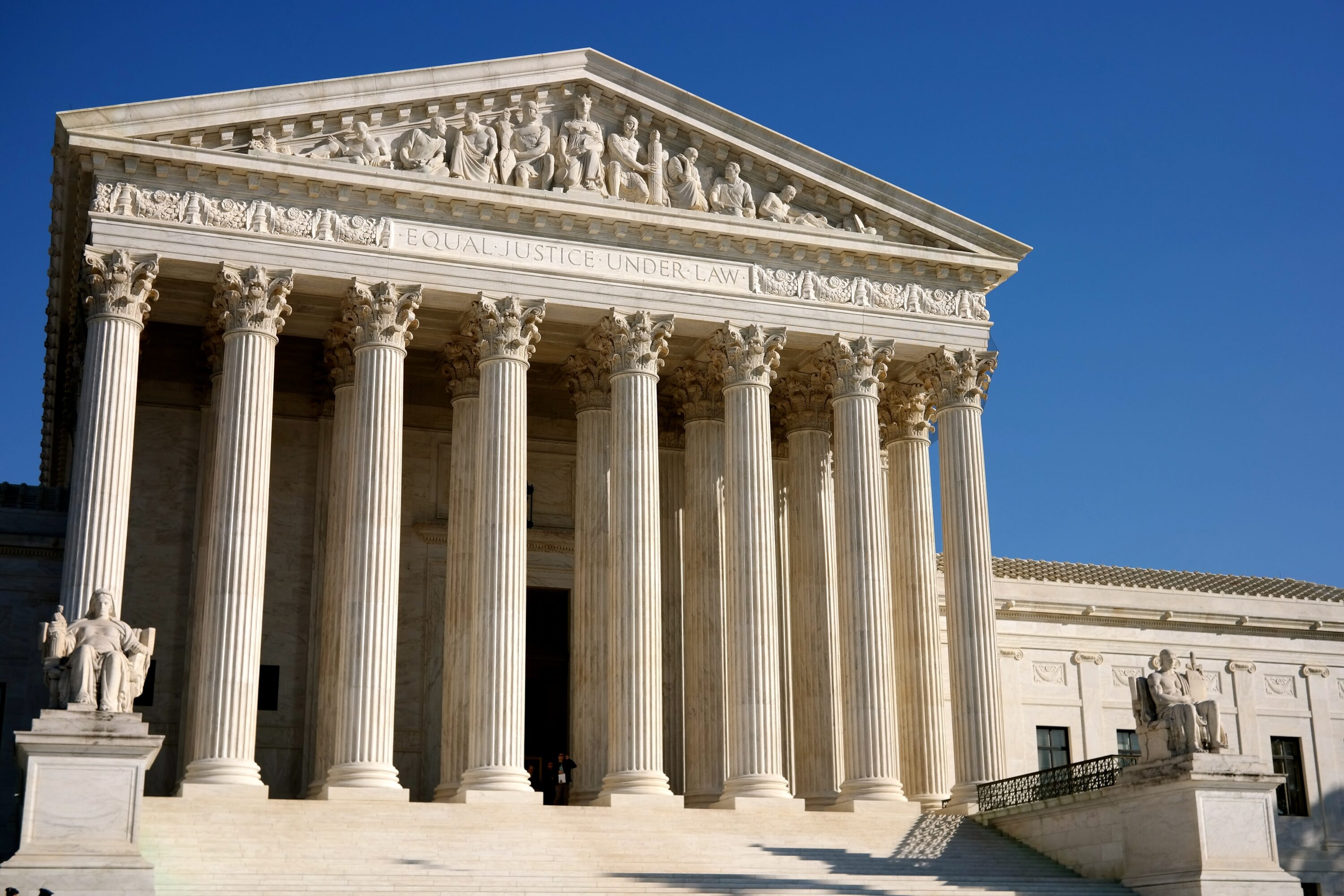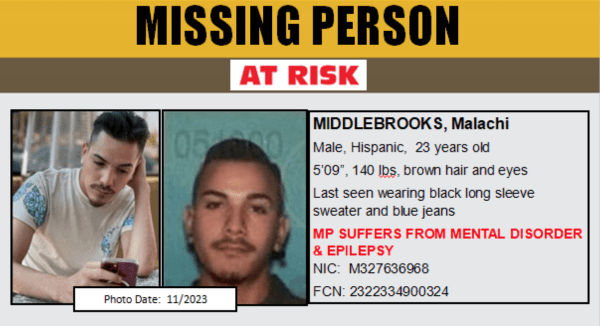By Brett Murphy and Kirsten Berg
This story was originally published by ProPublica. ProPublica is a Pulitzer Prize-winning investigative newsroom. Sign up for The Big Story newsletter to receive stories like this one in your inbox.
Series: Friends of the Court:SCOTUS Justices’ Beneficial Relationships With Billionaire Donors
Supreme Court Justice Clarence Thomas’ decadeslong friendship with real estate tycoon Harlan Crow and Samuel Alito’s luxury travel with billionaire Paul Singer have raised questions about influence and ethics at the nation’s highest court.
For decades, judges have relied on a select group to make sure the judiciary adheres to the highest ethical standards: themselves.
The Judicial Conference, a secretive, century-old council of federal judges led by the chief justice of the Supreme Court, oversees the ethics and financial disclosures for more than 1,700 federal judges, including the nine justices of the high court. Those financial disclosures, submitted yearly as a list of assets and gifts, are often the only window into whether judges with lifetime appointments have conflicts of interest as they rule on the country’s most consequential legal cases.
The judiciary’s leaders argue that the conference has been an effective watchdog over America’s third branch of government. The conference’s authority plays an important role in judicial controversies and has been at the center of some defenses of the court following ProPublica’s reporting on possible ethical breaches. With its “sound structure of self-governance,” Chief Justice John Roberts wrote in 2021, “the Judicial Conference has been an enduring success.”
In reality, the Judicial Conference has instead often protected, not policed, the judiciary, according to interviews and previously undisclosed internal documents. For decades, conference officials have repeatedly worked to preserve judges’ most coveted perks while thwarting congressional oversight and targeting “disloyal” figures in the judiciary who argued for reforms.
In the mid-1990s, two judges — a member of the Supreme Court and a judge on the conference — arranged to obscure a legal publisher’s role in underwriting meetings for an awards ceremony attended by judges at lavish resorts in locales like the Virgin Islands and Hawaii.
Years later, amid a Senate-ordered audit of judges’ travel records, one of the conference’s top officials in Washington told the chief justice that he had ordered his staff “to present the data in a way to mitigate the damage.” Congress did not ultimately pass any of the bills being floated around the time to restrict gifts and travel.
And when the judiciary clarified its rules on federal judges’ disclosures earlier this year, the final version was watered down, according to internal documents obtained by ProPublica. The goal behind some of the proposed edits, a staff attorney explained in an email to a subordinate, was to avoid “drawing bright lines.”
The conference, which sets procedures and rules for all federal courtrooms, coordinates an array of committees run by judges appointed by the chief justice. One of these, the Financial Disclosure Committee, is responsible for enforcing Watergate-era transparency laws and handling the rare allegation that a judge may have knowingly filed a false disclosure report.
Across the federal government, financial disclosures and potential conflicts of interest are self-reported. But experts say the judiciary has the least oversight of all three branches.
Members of the House and Senate face bipartisan ethics committees. Top officials at the White House and agencies like the Department of Defense need to have their disclosures cleared by an independent ethics office. Inspectors general can investigate and refer cases to the Department of Justice.
The enforcement capability of the judiciary’s Financial Disclosure Committee was tested in 2011, when Justice Clarence Thomas was accused of failing to disclose the source of his wife’s income, as well as potential free flights on real estate developer Harlan Crow’s private jet. The conference promised to look into it.
Instead, ProPublica found, two successive Financial Disclosure Committee chairs decided behind closed doors to end the inquiry at the outset and chose not to seek any evidence before the committee announced that it hadn’t seen any to support the allegations.
Even one of the Financial Disclosure Committee’s main functions — making sure judges’ self-reported income, assets and gifts comply with the law — is designed to help judges, not hold them accountable, according to nine federal judges and current and former staffers. Most of that daily work is farmed out to an obscure government agency known as the Administrative Office.
The Administrative Office, which answers to the Judicial Conference, had only about 12 full-time staffers in its financial disclosure division in 2022 and a rotating crew of temps. They review more than 4,000 disclosure reports each year. Instead of closely scrutinizing those disclosures, staff relies on the “honor system,” several of the people said.
Former officials at the Administrative Office say the unit is so mismanaged that a program assistant who orders office supplies and furniture has been tasked with helping review disclosures; staffers without law degrees have routinely given legal advice to judges; and some employees, including temps, have opted to simply fill out judges’ disclosures for them before signing off on those very same reports.
Wendy Smith, a former top attorney at the Administrative Office’s financial disclosure division, said the agency was structured to give the judiciary the appearance of complying with transparency laws, when it actually doesn’t. “They do not have a functioning financial disclosure and ethics program,” Smith said, “and I don’t believe they want one.”
In response to interview requests and a detailed list of questions, the agency said in a statement that it’s not a regulator and “the Judiciary has in place a robust and sound set of policies and procedures for facilitating compliance” with transparency laws, “designed to promote confidence in government.” The office declined to answer any of the specific questions “because many of them seem to be predicated on false or distorted premises.” The agency did not elaborate.
Roberts and Thomas did not respond to a list of ProPublica’s extensive questions.
Last month, the Supreme Court adopted its first-ever code of conduct but stopped short of defining an enforcement mechanism. That, coupled with the Judicial Conference’s record, has led some observers to assert that the new rules will ultimately change little.
That’s the way some judges like it.
“The vast majority of judges willingly comply with the rules,” Robert Loesche, who was the top lawyer at the Administrative Office for years, told ProPublica. “But there’s a minority of judges out there who push the envelope of judicial independence and don’t want their behavior monitored.”
“I’m Telling You: Nothing”
In 2011, lawmakers and advocacy groups filed a series of complaints against Thomas. The Heritage Foundation, a prominent conservative think tank, had paid his wife, Ginni Thomas, nearly $700,000 over multiple years.
Common Cause, a nonpartisan watchdog group, revealed that Thomas didn’t report that source of income on his financial disclosures, despite a legal requirement to do so. The New York Times also raised the possibility that Thomas may have flown on Crow’s jet at least three times. If Thomas had, in fact, taken those flights and Crow footed the bill, the justice failed to disclose that, too.
The conference told the lawmakers and Common Cause that the Financial Disclosure Committee would look into both issues.
Early in 2012, the committee held a meeting. Some of the judges in attendance expected a serious conversation about how to handle the matter. If there is “reasonable cause” to believe a judge might have intentionally falsified a disclosure or omitted information, the conference, through the Financial Disclosure Committee, is supposed to refer the case to the attorney general.
Instead, the committee’s chair, a Kentucky district judge and President Bill Clinton appointee named Joseph H. McKinley Jr., said immediately that he had decided to end the inquiry, explaining that Thomas already amended his filings to include Ginni’s source of income, according to one of the judges in the room.
McKinley asked the committee to bless his decision. The attendee interpreted that request as political cover for what was already a foregone conclusion. McKinley did not mention the plane travel, this judge said.
McKinley noted that the previous committee chair, senior federal appellate Judge Bobby R. Baldock, a President Ronald Reagan appointee, had also concluded months earlier that there was no reason to look more closely. But two judges who sat on Baldock’s committee at the time told ProPublica that Baldock had never discussed any of the allegations with the full committee.
Now, during the 2012 meeting, two other members of McKinley’s committee said they wanted more information on the circumstances of Thomas’ alleged lapses. At a minimum, the pair of judges said, the committee should ask the justice directly about how he came to omit something as basic as the source of his wife’s income, which Thomas had previously reported.
The matter went to a vote. McKinley prevailed. That April, he told the Administrative Office he was dropping the inquiry. The potential undisclosed travel never came up at all, according to one of the attendees. There’s no evidence that any judiciary officials ever investigated whether Thomas was on board the flights and, if so, whether he broke the law by not disclosing it.
Asked about the lack of an investigation into Thomas’ possible trips on Crow’s jet, one former Administrative Office official shrugged. “How would you address it otherwise?” the official said. “‘Hey justice, did you ever take a flight?’”
McKinley did not respond to requests for comment. Baldock declined to comment. The Administrative Office has said that both judges followed protocol and also referred the matter to a smaller group of judges, known as the subcommittee on compliance. The agency did not provide ProPublica with evidence of those conversations.
The handling of the Thomas issue doesn’t surprise lawyers and judges familiar with the disclosure committee’s role. Four former committee members said that although they were responsible for enforcing transparency laws, they understood that they had no actual power or personnel to conduct investigations. In the decades since the ethics law passed, the conference has never referred a single case of a potentially falsified report to the Justice Department for further review.
The judges at the appellate and district levels have long been governed by an ethics code and subject to misconduct investigations by local panels of colleagues. Experts have noted that there is no similar procedure for the Supreme Court justices.
McKinley appears to have violated judiciary policy by not mentioning the Thomas matter or its resolution in the committee’s biannual reports to the conference, according to congressional testimony from Judge Mark Wolf, who was a member of the conference at the time and fought to get more information about the committee’s closed-door proceedings. Instead, Wolf testified, the situation was improperly kept from judges like him, and the entire affair was “shrouded in secrecy.”
(According to the conference’s written policy, the committee’s reports are supposed to be public, but the Administrative Office has declined to provide the 2011 and 2012 documents to ProPublica. The policy itself is not public; ProPublica obtained a copy.)
Thomas did not respond to detailed questions about the episode. On Monday, his friend Mark Paoletta, who has attended vacations with Thomas and once represented Ginni as her attorney, wrote in a piece that ran in The Federalist that he “obtained” those questions. He wrote that Thomas acted consistently with transparency laws and that the conference did not need to investigate because Thomas was not required to disclose private jet travel.
The Ethics in Government Act explicitly requires justices to file accurate financial disclosures annually. “The more reasonable interpretation was that the law does and did cover those types of gifts,” said Jeremy Fogel, a former federal judge who served on the Financial Disclosure Committee for seven years. “The overarching purpose of the legislation was to cover situations like this.”
Other judges and court observers have offered a more institutional explanation for the committee’s apparent unwillingness to investigate Thomas: The Judicial Conference may have no authority over Supreme Court justices to begin with.
“You have to go a long way before you get lower-court judges to call a Supreme Court Justice onto the carpet,” said Russell Wheeler, a senior fellow at the Brookings Institute and one of the country’s preeminent experts on the federal courts.
Few publicly raised questions at the time about whether the committee lacked jurisdiction. Instead, the conference told Congress that “nothing had been presented to support a determination” that the justice had improperly failed to report gifts of travel. That statement has since been repeatedly cited as an exoneration.
“The Judicial Conference issued a letter confirming that Justice Thomas had not improperly failed to disclose information concerning his travel,” Thomas’ attorney, Elliot Berke, wrote in August.
“That couldn’t be further from the truth,” one of the judges on the 2012 committee told ProPublica, noting there was only brief discussion of the committee’s limited remit and no effort to actually investigate the allegations against Thomas. “I’m telling you: nothing.”
Now the Supreme Court is embroiled in the worst ethics scandal in a generation. ProPublica and other outlets have detailed lavish gifts and trips that ultrawealthy conservatives have given to Thomas and, and in one instance, to Justice Samuel Alito. They failed to disclose the largesse, including private plane rides — the same alleged lapse that the Judicial Conference balked at 11 years ago. (Thomas has since acknowledged he should have reported a real estate transaction with Crow and amended a past disclosure to reflect the sale.)
In recent months, some Democratic lawmakers have once again called for the Judicial Conference to investigate Thomas and refer the case to the attorney general. And again, the conference referred their complaints to the Financial Disclosure Committee.
The Administrative Office has declined to explain where the process stands or how the Judicial Conference has squared its duty to enforce the financial disclosure law while possibly lacking the ability — or authority — to investigate the circumstances surrounding justices’ omissions or inaccuracies.
Judges and Kings
The conference’s 2012 handling of the Thomas affair was emblematic of its deferential treatment of judges, according to documents and officials. For years, judicial leaders insisted on preserving perks like free travel and deflected calls for congressional reform when the gifts came to light.
In 1995, the Minneapolis Star Tribune revealed that multiple Supreme Court justices, including liberals and conservatives, had gone on opulent trips funded by West Publishing ahead of a prestigious judicial honor known as the Devitt Awards.
West then enjoyed a near-monopoly on publishing federal court records, an indispensable legal research tool used by lawyers and judges across the country. The Star Tribune reported that the company had hosted the justices and other federal judges on the awards’ selection committee at luxury resorts, trips worth as much as $7,700 per judge. One former justice, Lewis Powell Jr., had written letters asking the company to choose the U.S. Virgin Islands or Palm Beach, Florida, “on the water, superior facilities, and affording many interesting things to do and places to see — particularly for our ladies.”
Justices who attended later decided favorably for West by declining to hear multiple cases that its legal opponents had appealed to the Supreme Court. (Denying such appeals is routine. The justices agree to hear only a small fraction of cases brought to them.)
Sen. Arlen Specter, R-Pa., requested hearings to launch an investigation. Responsibility for containing the damage fell to a pugnacious official who served as then-Chief Justice William Rehnquist’s eyes and ears in Washington: L. Ralph Mecham.
Mecham, a former oil and mining executive and lobbyist, had become the director of the Administrative Office in 1985 and would serve until 2006. The director is also the secretary of the Judicial Conference. Congress created the Administrative Office in 1939 as an alternative to the Justice Department, which had been in charge of running the courts’ day-to-day operations.
Mecham never saw himself as a judicial watchdog. In letters to friends and colleagues, he described his role variously as a “servant,” “ally” or “fireplug” for judges under constant assault by reporters and Congress for, among other things, undisclosed junkets. For this story, ProPublica reviewed hundreds of contemporaneous notes, letters and other memos archived at multiple universities.
The legal community began to realize the Administrative Office had effectively become the judiciary’s lobbying and public relations arm. In the 1990s, when critics said the agency was behaving too much like an advocate for judges, officials with the agency responded that they were proud to be “guilty” of the charge.
During his tenure, Mecham’s primary allegiance was to his boss, Rehnquist. The two had regular written correspondence and meetings. (Both men are now dead.)
At the height of the questions about the Devitt Awards, Mecham left a message with Rehnquist’s assistant saying that “he wonders if someone shouldn’t call Senator [Orrin] Hatch to have him call Senator Specter to persuade him to withdraw his request to investigate the Devitt Award,” according to the assistant’s notes of the conversation.
It’s unclear if Rehnquist made such a call. But 10 days later, Mecham reported in a confidential letter that he’d learned Hatch considered Specter’s proposed investigation “ridiculous” and said there would never be hearings on the matter.
Meanwhile, Ralph Nader, the consumer activist, wrote to Rehnquist about the scandal to ask for a prohibition on such trips. As pressure mounted, Justice Anthony Kennedy, who was on the Devitt Awards committee, discussed an alternate plan with the CEO of West Publishing: The company could give a grant to an organization like the American Judicature Society, which would then administer the awards and host the committee meetings.
Kennedy relayed his efforts to Richard S. Arnold, a judicial conference judge and fellow member of the awards committee, and asked him to call West to voice his support for the plan. Arnold wrote in a memo afterwards, “Even though the money will come from a grant by West, this would apparently purge whatever taint exists in the eyes of Mr. Nader or others, and the issue of the propriety of my participation in the administrative decisions affecting legal publishers would disappear.”
Two months later, the society announced it was taking over the Devitt Awards, with funding from West. (A spokesperson for the company said at the time that the move had been years in the making.) Congress did not hold hearings on the matter.
Kennedy, who retired in 2018, did not respond to requests for comment. Arnold died in 2004. At the time, several judges said there was nothing inappropriate about the trips because they were disclosed and it hadn’t impacted their rulings.
Following the Devitt stories, there was more press coverage about federal judges taking extended travel to seminars hosted by private interests and sometimes failing to disclose the trips. Critics noted that the sponsoring corporations and foundations often promoted a free-market, pro-industry ideology while educating judges on issues like regulation.
Iowa Republican Sen. Charles Grassley launched an audit of judges’ travel in 1997. The Government Accountability Office collected individual judges’ travel records. (The GAO has no authority over the Supreme Court, one of the only institutions outside Congress with that immunity.)
Mecham had long feared that Grassley was “going after judges” and tried multiple times to gather intelligence by finding out who was speaking to the senator’s staff and what they provided to the GAO. “I think the judiciary is facing serious problems with respect to the travel issue,” Mecham told one of the conference committees as the data started coming in. But he added a reassurance the next day: “I have asked my staff to do everything they can to present the data in a way to mitigate the damage.”
It’s unclear how they carried out that plan. Grassley’s probe eventually resulted in lengthy reports detailing thousands of judges’ trips, from Jackson Hole, Wyoming, to Panama, funded by taxpayers or private interests.
In the end, though, Congress imposed no new travel restrictions on judges.
In an interview with ProPublica, Mecham’s former associate director, Clarence Lee, defended his boss, saying the Administrative Office can successfully help enforce transparency laws and hold the judiciary accountable. He said the agency often drew the ire of judges because it disciplined their clerks for infractions like misusing office computers. Lee dismissed congressional probes as political stunts.
“Any mechanism put in place that allows a secondary group to second guess their [judges’] behavior can have draconian results,” he said. “You don’t have an inspector general for kings or judges because then you’d no longer have a king or a judge.”
In the early 2000s, public concern and political pressure continued. One study conducted by a public-interest law firm found that nearly a quarter of the judiciary had traveled to at least one seminar put on by conservative groups between 1992 and 1998. These events were often at resorts while some of the judges in attendance were trying cases those groups had a stake in. And almost 1 out of every 9 federal judges — appointed by both Democratic and Republican presidents — had failed to report a privately funded trip during that same stretch, according to the study, which made national headlines.
Some judges on the conference broke ranks and advocated internally for reform. Mecham urged Rehnquist to fire the outspoken apostates from their committee posts, “not only because they have been repeatedly disloyal to you but also because they have been disloyal to the Judicial Conference.”
Abner Mikva, then a retired federal appellate judge, leading liberal congressman and personal mentor to Barack Obama, went public. He submitted an article to a law review journal titled “Judges, Junkets and Seminars.”
“It grieves me that so many judges feel threatened by proposals to change the present system,” wrote Mikva, who died in 2016. “If that large a portion of the public — legislators, the media, lawyers, litigants — sees a problem, then it is a problem that needs redressing.”
“Looking in the mirror,” he added, “is not enough to guarantee the perception of honesty and integrity that has to be the touchstone of a successful judicial system.”
In the aftermath, the Judicial Conference made some concessions on travel rules, including a requirement for seminars to report their funders before judges can attend and better public access to financial disclosures. But the judiciary has largely managed to prevent substantive reform from Congress, including at least two failed Senate bills that would have restricted travel and gifts or created an independent ethics monitor.
Twenty-Something Temps
The Administrative Office does not consider itself a regulator. But staff inside its tiny financial disclosure division are responsible for screening judges’ financial disclosures. Employees there describe a flawed process.
Those who examine the disclosure forms are often temps. Two former examiners told ProPublica they did not recall any training on how to review the gift portion of the reports. And since 2019, they no longer compare judges’ assets on their current disclosure with the previous year’s, which many staffers had considered the bare minimum of due diligence. The committee decided it “could rely on the filer’s certification that the report is accurate,” according to a recent Judicial Conference report. If someone does happen to catch something that may be wrong with a report, it is typically handled with a letter asking the judge to fix it.
One former temp, who was hired straight out of college, said most of the supervision she received was about using proper grammar in her emails. “Guys have been on the bench for 20 years and the last thing they want to do is talk to a 20-year-old who’s telling them they’re not doing their job right,” said another examiner.
Staffers without law degrees have routinely given ad hoc legal guidance to judges about their financial disclosures because of staffing shortages, one former Administrative Office official told ProPublica. Contemporaneous notes also show that’s been an internal practice.
“That’s awful,” said Peter McCabe, who was a top official at the agency for decades. “I can’t believe that.”
After senior staff sign off on the work, the disclosures are sent to the Financial Disclosure Committee for final approval, which is largely ceremonial, said three former committee judges. “It’s an assurance that a report has been filed,” one told ProPublica. “Is it truthful? I have no idea.” Two said they didn’t receive any ethics training for how to interpret and apply the Ethics in Government Act and instead relied on the same standards they applied on their own disclosures.
The process amounts to the “honor system,” six former staffers and judges on the Financial Disclosure Committee said.
Federal law requires the disclosures to be made available 30 days after being filed. In June, ProPublica asked the Administrative Office for dozens of disclosures. But the agency still hasn’t released them, citing a backlog of requests.
The judiciary has “redaction authority” to remove parts of judges’ disclosures from public view. It’s meant to be invoked if revealing something, like a home address, would pose a security threat for judges or their family. The Administrative Office told ProPublica the authority “is strictly interpreted and applied.”
However, a 2018 GAO report found nearly one in four requested redactions was for something other than an obvious security risk. Some judges redacted gifts they had received or the value of their stocks. On top of that, the GAO found, the Administrative Office has at times ignored its legal requirement to submit annual reports to Congress on how judges are using their redaction authority.
Staff inside the office also play a crucial role in shaping the judiciary’s rules for what gifts judges can accept and what they need to disclose. That, too, has at times been used as an opportunity to help judges preserve their perks, records and interviews show.
In late 2022, after decades of criticism, the judicial conference began work to refine the language about financial disclosure requirements in the judiciary’s rules.
When the new wording came out in March, it did not substantively change its rules about what fell under the controversial personal hospitality exception. Instead, the conference merely made explicit that judges must disclose gifts of transportation, like private jet rides. In a recent report to the conference, the committee itself characterized the update as “clarifying.”
An initial proposal for the March update had gone further, according to internal documents. Lawyers at the Administrative Office provided an analysis for the Financial Disclosure Committee laying out how the Senate defined personal hospitality more strictly and gave a proposal for some new, more prescriptive language.
The update would have imposed tighter disclosure requirements for when a judge gets a free stay at someone’s house. That language was softened before the final cut.
The draft language required stays to be disclosed if that property gets “rented out to others other than on an occasional basis.” The final guidance, however, lowered that threshold and instead requires judges to disclose the gift only when they’ve stayed at a property that’s “regularly rented out to others for a business purpose.”
The goal for some of the other proposed edits, deputy general counsel Laurina Spolidoro explained in an email obtained by ProPublica, was to present “a consideration of factors” to judges “rather than drawing bright lines.”
To Smith, Spolidoro’s subordinate at the time, the message was clear: judges wanted the ability to continue accepting certain gifts without having to disclose them. Spolidoro did not respond to requests for comment, but an Administrative Office spokesperson refuted Smith’s characterizations and said those in the office take their job seriously.
Smith said she quit the Administrative Office because she wasn’t allowed to do her job as an ethics attorney, and when she tried to make changes to the financial disclosure program, she was stripped of her duties.
Smith said she was told by Spolidoro and others that “the judiciary is outside the Ethics in Government Act.”
ProPublica is a Pulitzer Prize-winning investigative newsroom. Sign up for The Big Story newsletter to receive stories like this one in your inbox. Republished with Creative Commons License (CC BY-NC-ND 3.0).







